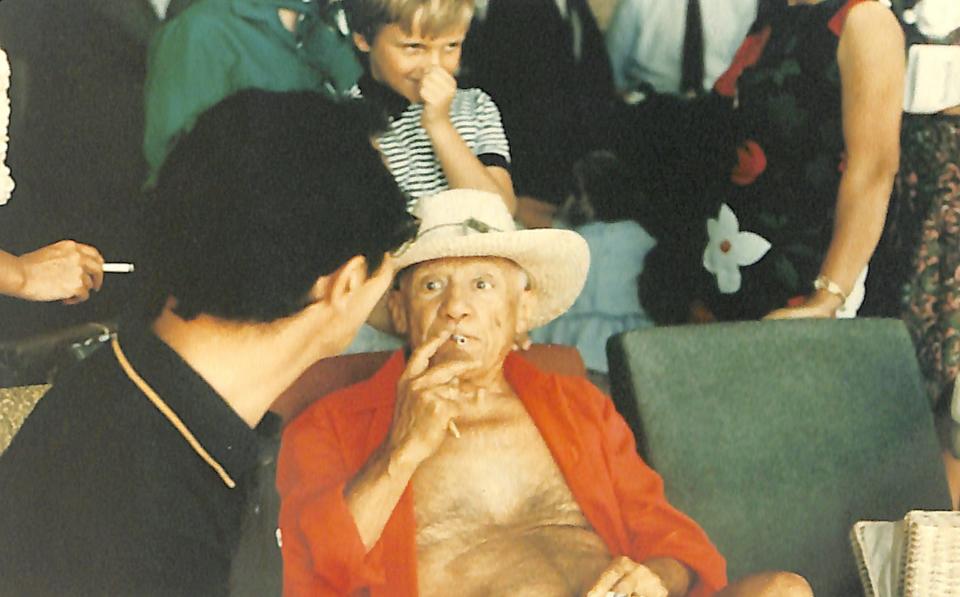How I Learned to Stop Worrying and Love the New Perry Mason
I wasn’t sure about the new Perry Mason, a reboot of the classic series about a masterful defense lawyer who could get anyone to confess on the stand. I wasn’t sure, when I saw the trailer, if it would end up leaning too heavily on the noir signifiers. (You call legs “gams,” we get it!) I wasn’t sure who it was targeting, exactly—anyone who watched and enjoyed the original iteration as an adult is too old to want to watch Perry Mason fuck in a seedy HBO drama; anyone younger probably wouldn’t care about the franchise. And I definitely wasn’t sure after I watched the pilot and thought, “Ah, so this really is just Perry Mason, But He Fucks.”
But now, in advance of Sunday’s season finale, I am sure. And in a Perry Mason moment of my own, I’m admitting to you on the stand (this blog post): I thoroughly enjoyed the new Perry Mason.
The show is meant to serve as a gritty backstory for the eponymous lawyer from the wildly popular television program starring Raymond Burr and, originally, a series of detective stories written by Erle Stanley Gardner. Before he becomes the upstanding fictional attorney beloved by your grandparents, Perry (Matthew Rhys) is a divorced ne'er-do-well drunkard struggling with World War I flashbacks and making a living as a private investigator, producing blackmail on various unsavory characters in early-1930s Hollywood. But when he’s tasked with investigating a gruesome kidnapping and murder of a one-year-old baby, he’s moved and compelled to seek justice.
The first episode blatantly crammed every single HBO prestige motif it could—Sex! Murder! Anti-hero! Shea Whigham!—into an hour, which left me less than optimistic. But then I began to settle in and appreciate it for what it is: a solid standalone entity rather than part of a pre-existing cultural institution in which I had no investment. Besides wanting to see the mystery through, here’s what won me over.
Matthew Rhys.
This reboot was initially meant to star Robert Downey Jr., with True Detective’s Nic Pizzolatto attached to write and direct. But, because that is too much grit for any one human being to withstand, we ended up with Rhys instead—a far superior choice, especially if you miss The Americans as much as I do. Offscreen, Rhys is a Welsh bon vivant married to Keri Russell who hosts his own rollicking wine show. Put him on television, and he plumbs the depths of brooding sorrow—The Ringer unpacks his many faces of malaise here—while remaining entirely charming. (You know what would be even more charming? If we ever let Matthew Rhys use his Welsh brogue on television.)
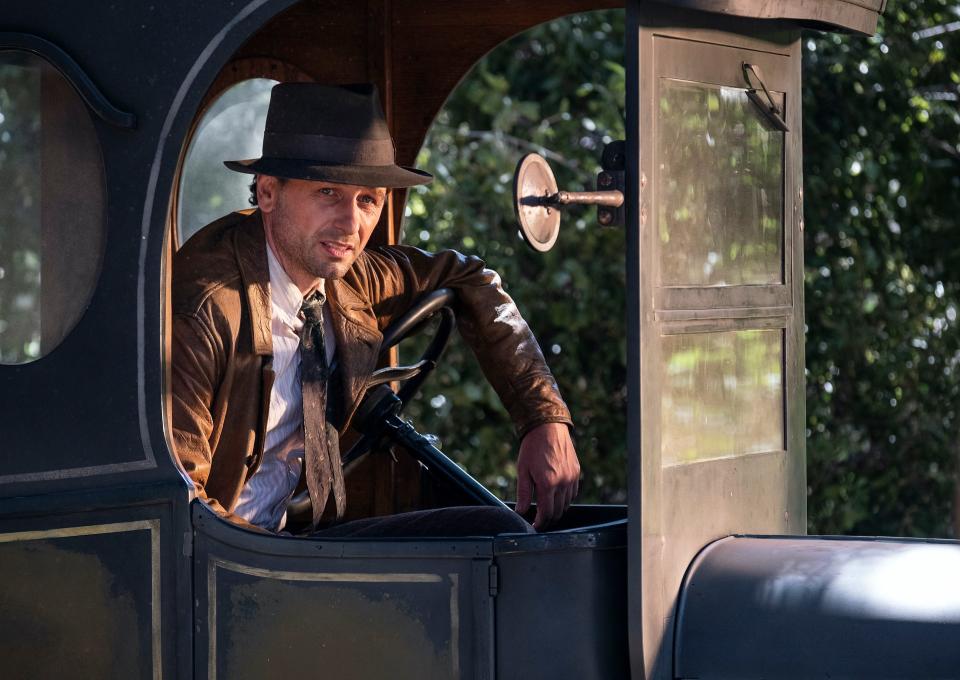
Matthew Rhys smoking.
To anyone under 18 who, for some reason, clicked on an article about an HBO remake of a show your great-grandparents watched instead of posting on TikTok or whatever: do not read this. Everyone else: Rhys provides ample evidence throughout for my theory that smoking will never not look sexy and cool.
It evokes the textures of Old Hollywood…
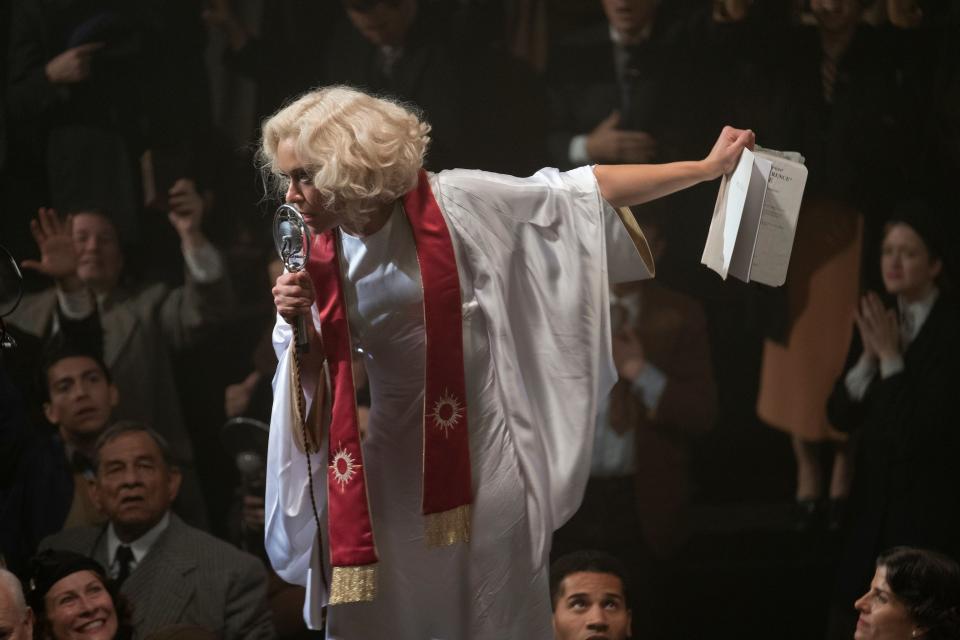
The Golden Age of Hollywood is rich for mining, and Perry Mason’s world bumps up against that milieu occasionally without making it the focus, which ultimately makes for a more gratifying atmosphere. The best example of this is the subplot concerning Sister Alice (Tatiana Maslany), an alluring Evangelist celebrity preacher who mixes theatrics with gospel and runs the church to which the murdered baby’s mother belongs. Sister Alice is based on the even wilder real-life figure of Aimee Semple McPherson, on whom Slate published a fascinating deep dive.
…but more truthfully for modern audiences.
Perry Mason isn’t the only one who diverges from his counterpart in the original series. In the interest of not revealing too many spoilers, two of those characters turn out to be closeted. (Perhaps a nod to how Raymond Burr, the original Perry Mason actor, hid that he was a gay man during a time when coming out would have ruined his career.) Paul Drake, Mason’s eventual right-hand man, is Black in this version, portrayed by the outstanding Chris Chalk; his backstory involves his stint as a cop in a corrupt and racist Los Angeles Police Department. And the most compelling minor character is Lupe (Veronica Falcón), a hardass Mexican aviator who is romantically entangled with Perry.
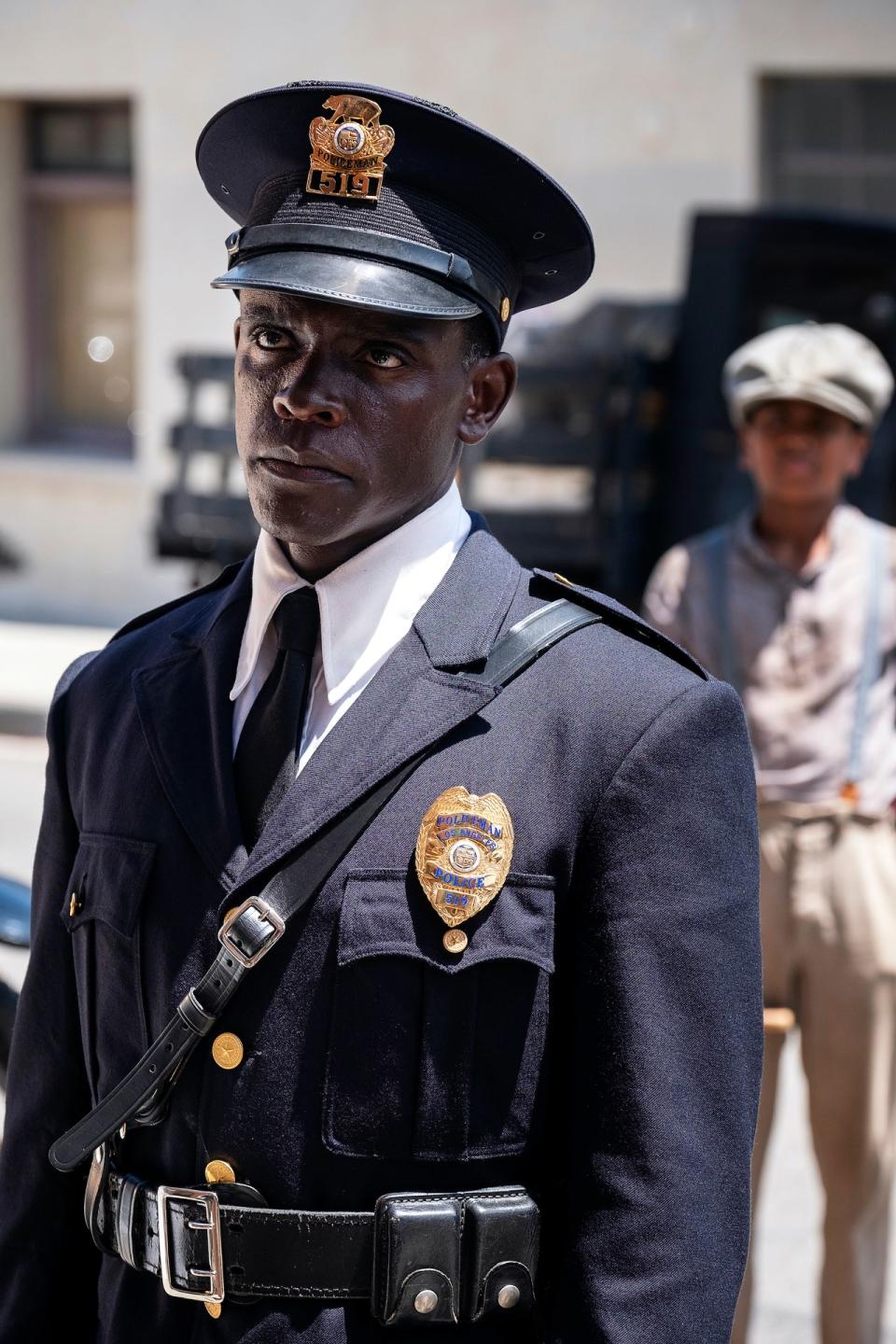
There’s a genre switch that takes it to the next level.
Three-quarters of the way through its run, Perry evolves from good-for-nothing sleaze to actual defense lawyer. Although it had to happen, I resisted at first, because it’s a lot of fun watching Matthew Rhys play a less-than-respectable dumbass—but seeing the show effortlessly kick into high gear as a tense courtroom drama is worth it.
It’s a formulaic prestige drama—and that’s a good thing.
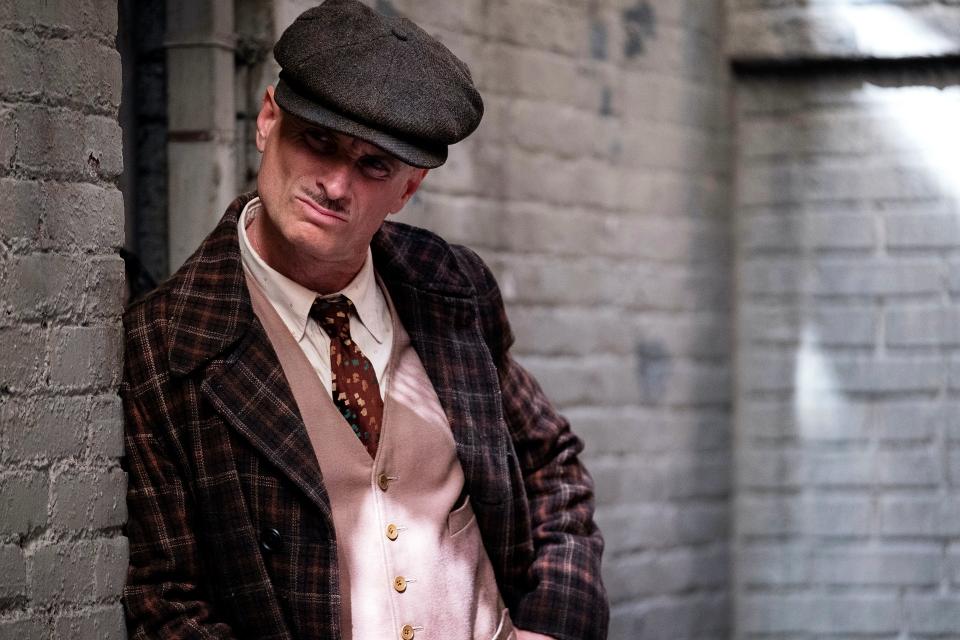
I’ve taken to calling the show Boardwalk Empire West, and not just because my guy Shea Whigham is in it. This is a compliment—I love Boardwalk Empire dearly. (When my now-husband started watching a few years after I finished nearly brought myself to tears trying to not spoil the part about the guy who has sex with his mom.) (And then I did spoil it.) See, Perry Mason hearkens back those earlier days of prestige TV: a brooding middle-aged male antihero battling his demons, a fraught relationship with his mentor, frequent flashes of sex and violence. Go ahead and run through this prestige drama checklist in this old Vulture article and you can tick all the boxes. Adhering to that familiar formula has produced a slate of prestige shows which are lesser-tier but still have excellent production value—the new comfort TV of sorts. But if we’re going to keep doing this, I have one demand: Fletcher, the gritty reboot of Murder, She Wrote.
Get out your short-shorts and take off your shirt: it’s time to have yourself a Picassocore summer.
Originally Appeared on GQ
